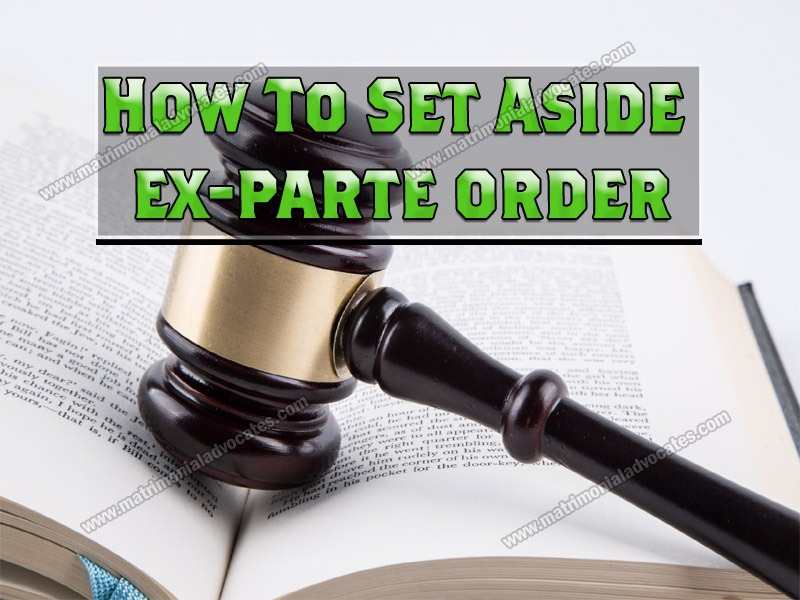
First of all we have know that what is an ex-parte order.
When the plaintiff files a civil case against the defendant/respondent and after admission of the case or after the framing of the notice/summon to the defendant(s) the court ordered the defendant to give their presence in person and to file response on the case filed by the plaintiff.
After receiving of such notice the defendant has to give his presence before the Hon’ble Court if he did not do the same then the court thinks the defendant is deliberately not appearing before the court .
The hon’ble court gives two to three time to the defendant for giving his appearance after receiving the notice thereafter court declared the defendant as ex-parte.
If the defendant deliberately ignoring the case or deliberately denying for taking the notice in that case also court think the service of the notice has been successfully served.
The meaning of the ex-parte in the simple language is like one sided order or the further proceeding would be held one sided or the matter would be in the favor of the plaintiff.
Ex-parte judgment.
The ex-parte judgment is when the defendant deliberately ignoring the matter or not giving his presence in the matter after receiving of the notice in that case the court will declare the defendant as the ex-parte and starts further proceeding for reaching on the final decision of the case and thereafter passed judgment/decree in favor of the plaintiff.
If the defendant after service of the notice appeared before the court or giving his presence regularly and after that he started ignoring the matter and started not giving his presence in that case also court proceeds the defendant as the ex-parte.
The judgment/decree of ex-parte is simply the judgment held in the favor of the plaintiff without the appearance of the defendant.
REMEDY AGAINST THE EX-PARTE ORDER/JUDGMENT
The remedy to set-aside the order of the ex-parte is already given in the Civil Procedure Code-1908, under order IX Rule 7 i.e. Where the Court has adjourned the hearing of the suit ex-parte and the defendant, at or before such hearing, appears and assigns good cause for his previous non-appearance, he may, upon such terms as the Court directs as to costs or otherwise, be heard in answer to the suit as if he had appeared on the day, fixed for his appearance.
That the remedy for setting aside the ex-parte decree/judgment is given under order IX Rule 13 of the Civil Procedure Code,1908. i.e. Setting aside decree BIex parte against defendant— In any case in which a decree is passed ex parte against a defendant, he may apply to the Court by which the decree was passed for an order to set it aside; and if he satisfies the Court that the summons was not duly served, or that he was prevented by any sufficient cause from appearing when the suit was called on for hearing, the Court shall make an order 64 setting aside the decree as against him upon such terms as to costs, payment into Court or otherwise as it thinks fit, and shall appoint a day for proceeding with the suit; Provided that where the decree is of such a nature that it cannot be set aside as against such defendant only it may be set aside as against all or any of the other defendants also:
That the defendant has to move an application under the abovestated rule of the CPC 1908, in the application the defendant has to mention all the facts and reason for not giving his presence before the court. If the reason for not appearing is genuine then the court set aside the order/decree.
That is very important for the defendant to file an application under order IX Rule 13 of CPC 1908, within 30 Days for setting aside the decree of ex-parte. That the filing of the application for setting aside the ex-parte decree should be presented in the court within 30 days just because this is limitation period that given to the defendant for saving the rights of the defendants.






Very understandable and interesting..